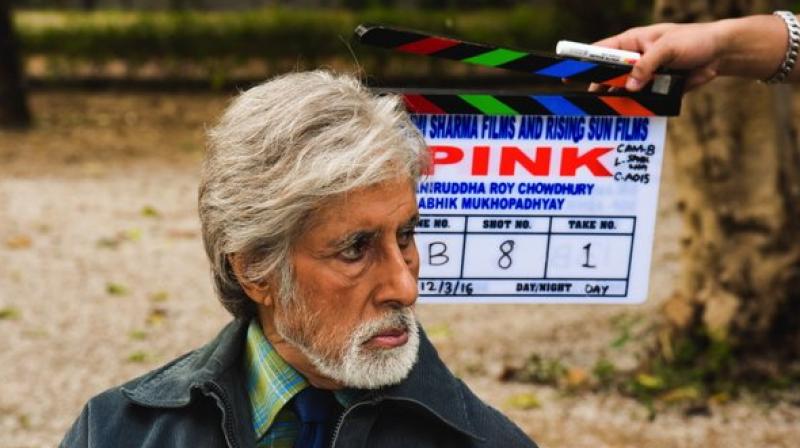FASSA SAR WRITES – Aniruddha Roy Chowdhury’s new Bollywood film, Pink, combats underlying sexism and androcentrism within Indian culture. The film points out the misogynist culture that justifies violence against and control of women.
The film, Pink, tells the story of three girls, Meenal, Falak, and Andrea, who attend a rock concert on the outskirts of Tamil Nadu and run into a male friend Vishwa and his buddies Rajveer and Anki. The night turns upside down when they begin to drink, and Meenal is raped by Rajveer.
To protect herself, Meenal swings a beer bottle at Rajveer, leaving him grievously injured. The three men, bent on exacting revenge, begin to stalk and terrorize the girls
The Indian film industry has used this generic plotline for Indian films: “boy meets girl, falls in love, gets rejected – and pursues her anyway.” Activists complain that this plotline is problematic because it encourages men and young boys to chase after women even after they say no.
Indian cinema is just one part of the problem, though. The main issue is with the traditional patterns of thinking which hold that women are the subordinate sex. India is facing an out-of-control rape epidemic and violent crimes against women remain unaddressed by existing policies. Pink’s plotline might seem generic, but violence against women is a harsh and terrifying reality in India.
On just September 20th, New Delhi reported the murder of a 21-year-old teacher who was hacked to death with a sickle at a busy suburban railway station. Her murderer, her former neighbor and alleged stalker, stabbed her more than 20 times. Although there were hundreds of bystanders surrounding the victim and her assailant, very few tried to intervene.
The numerous cases of violence against women highlight the immense crisis that India faces. But why is this happening? Some answers point to the Indian caste system, which not only places women under men but also claims they are “sinful creatures that possess poison” according to Book 13 Section 40 of The Mahabharata.
While films like Pink are challenging the growing epidemic, the success of the standard “boy chases girl” Bollywood plotline yields uncertainty over whether or not violence against women will come to a stop.The director, Aniruddha Roy Chowdhury told the BBC, “Pink is a protest call not to judge women. A woman who drinks, parties and has male friends over to her house is branded as a ‘woman of low character.’ A democratic society must be intolerant to a culture that brands women like this.”


